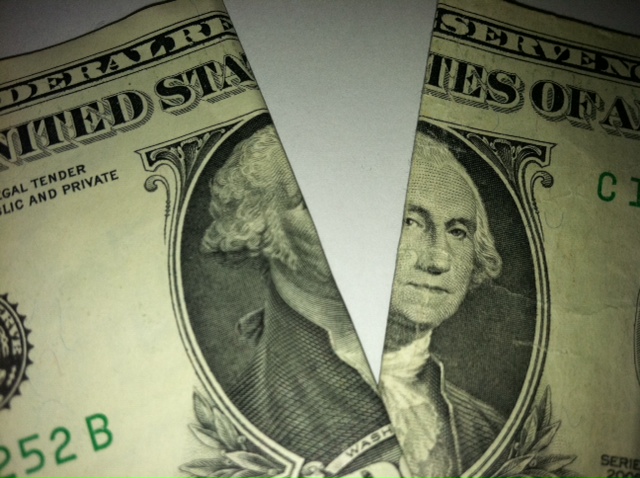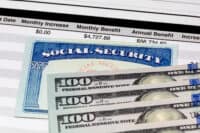The bull market is now six years old, and the Dow Jones Industrial Average (DJIA) and S&P 500 have bounced an average of about 200% each from the March 2009 lows. While investors have been enjoying ever higher dividends and buybacks at a new record, you just do not see waves and waves of stock splits any longer.
Keep in mind that stock splits are just one of the corporate governance tools used by companies to reward investors. That being said, stock splits on a standalone basis do not change a single fundamental about a company. Still, the reality is that investors just love stock splits.
24/7 Wall St. has identified several stocks that ought to consider splitting their stocks. Whether they will is another matter, but these are companies that seem overdue and also would benefit from a split — with management teams that might actually listen.
Another reason for companies to consider splits is to give retail investors an idea that they are getting another chance to buy the stock. Again, this simply may be a gimmick that investors just love.
ALSO READ: Is the Sixth Stock Split From Starbucks the Charm?
If you will recall, endless numbers of stock splits were seen in the late 1990s and just after 2000. That was during the tech bubble, when some companies doubled or tripled multiple times.
One consideration for companies is that the investing public is very different than the institutional buyers. Individuals often have limited funds to invest in a single stock, and people still prefer buying 100 shares rather than only three. Buying 100 shares of a $400 stock will cost $40,000.
If big companies want to see their shares keep participating in what is becoming a secular bull market, using the split gimmick is just one of many tools that mentally helps investors out. Companies such as Apple, Starbucks, MasterCard, Visa, Google and others have even capitulated and gotten into the stock split game.
24/7 Wall St. has included in its reviews the most recent share price and what it costs to buy 100 shares. Also included is when the split was (if it has split), and what the returns were since that split. The market capitalization, average daily volume and each stock’s 52-week range are included as well, as are a backgrounder for each company. We have added color on each concerning what one share costs versus the products these companies are known for.
Since our last look at potential stock splits, only one-fourth of the group actually announced a stock split: Apple, Google and MasterCard. 24/7 Wall St. did not include stocks such as Amazon, Priceline and LinkedIn this time around because it seems those companies do not want to or need to pay attention to outside influence. Also, Priceline’s last split was an unwelcomed reverse split after the tech bubble burst.
ALSO READ: Buybacks and Dividends at All-Time High in 2014, Even More Seen in 2015
The seven stocks identified by 24/7 Wall St. as likely split candidates are as follows: AutoZone Inc. (NYSE: AZO), Biogen Idec Inc. (NASDAQ: BIIB), Boston Beer Co. Inc. (NYSE: SAM), Chipotle Mexican Grill Inc. (NYSE: CMG), FedEx Corp. (NYSE: FDX), 3M Co. (NYSE: MMM) and Sherwin-Williams Co. (NYSE: SHW).
AutoZone
> Stock price: $663.00
> Cost per 100 shares: $66,300
> Last split: 1994
> Gain since: over 20-fold
> Market cap: $21.2 billion
> Average volume: 276,000
> 52-week range: $491.93 to $675.85
AutoZone Inc. (NYSE: AZO) just feels like a very strange bird to have a $662 share price. The company’s $21 billion market cap would be even larger had it not repurchased so many shares. AutoZone just recently announced a $750 million share buyback plan, and it disclosed that it has authorized $15.7 billion in total buybacks since 1998. The company has 5,042 domestic retail AutoZone stores, and the international store count takes it up to a total of 5,476 stores. If you walked into an AutoZone store, its share price would be massively higher than the median retail price of its inventory. Its website said it did split two-for-one back in 1994 and 1992. Management is perhaps more focused on buying back stock and driving earnings per share, and they can always argue that their share price has not been hurt as a result.
ALSO READ: 4 Attractive Dividend Stocks for a Low Interest Rate World
Biogen Idec
> Stock price: $433.00
> Cost per 100 shares: $43,300
> Last split: N/A
> Gain since: N/A
> Market cap: $101.8 billion
> Average volume: 1.83 million
> 52-week range: $272.02 to $480.18
Biogen Idec Inc. (NASDAQ: BIIB) is one of the top biotech companies in the world. Now it appears that the leader in multiple sclerosis drugs is ready to embark on a potential mega-blockbuster drug for Alzheimer’s disease, if it makes it through Phase 3. The company has made an effort to simplify its name by reverting to the Biogen name. Biogen pays no dividend, and the share price makes it very difficult for traditional biotech investors to buy even 100 shares ($46,300). With a $101 billion market cap, it compares to market caps of $149 billion for Gilead Sciences (with a $100 share price) and Amgen’s $126 billion (with a $166 share price).
Boston Beer
> Stock price: $266.00
> Cost per 100 shares: $26,600
> Last split: N/A
> Gain since: N/A
> Market cap: $3.5 billion
> Average volume: 140,000
> 52-week range: $208.82 to $325.00
Boston Beer Co. Inc. (NYSE: SAM) has become the face of the independent-run craft beer movement with its many Sam Adams beers, although its $3.5 billion market cap makes it increasingly hard to be considered a craft brewery. Still, the stock price was under $50 until right before the recession and then stayed back well under $50 until early in 2010. In the five years since, the stock went above $300 and the average daily volume has grown from a year or so ago. With about 89% of the stock owned by institutions, we cannot help but wonder if the share price discourages Sam Adams beer fans from even knowing or caring that the beer maker is a public company. If the average price of a six-pack is still around $8, then Sam Adams loyalists can decide whether they want to buy one share of stock or 33 six-packs.
ALSO READ: The Top 8 Dividend Stocks Owned by Warren Buffett and Berkshire Hathaway
Chipotle Mexican Grill
> Stock price: $668.00
> Cost per 100 shares: $66,800
> Last split: N/A
> Gain since: over 1,000%
> Market cap: $20.7 billion
> Average volume: 434,000
>52-week range: $472.41 to $727.97
Chipotle Mexican Grill Inc. (NYSE: CMG) has never split its stock, and we cannot fathom why. The fast-casual dining chain came public in 2006 at $22, but it doubled out of the chute. Even if we took a base case price of $50, this one has risen 13-fold since. Considering that a one-person eating experience costs $10 or less, it seems hard to imagine that a diner would come in and follow through with the notion that maybe they would want to own a piece of this franchise stock with a $600+ nominal value. Former parent McDonald’s (yes, it was the former parent) never let its stock reach a nominal zenith of this magnitude, and it seems out of place for an eating establishment to have such a large share price. McDonald’s has split its stock 12 times, yet its market cap is less than five times that of Chipotle.
FedEx
> Stock price: $166.50
> Cost per 100 shares: $16,650
> Last split: May 1999
> Gain since: over 200%
> Market cap: $47.2 billion
> Average volume: 1.64 million
> 52-week range: $130.64 to $183.51
FedEx Corp. (NYSE: FDX) has seen its stock rise handily, and the stock recently traded near $170 while much larger rival UPS traded around $100. FedEx has had five two-for-one stock splits, but the most recent split was all the way back in May of 1999. Its prior two-for-one split was in 1996, but before that it was all the back to 1983. What is so interesting is that FedEx also has a much lower dividend yield than its larger rival, at roughly a 0.5% yield. Shares have tripled since its last stock split, and we just do not see the need for FedEx to carry on with such a low yield and without a dividend. The cost of one FedEx standard overnight package weighing one pound going from Houston to New York City would cost roughly $54. It would take more than 300 of those packages to equal the cost of 100 shares.
ALSO READ: UBS Dividend Ruler Stocks Keep Raising Dividend Payouts
3M
> Stock price: $163.50
> Cost per 100 shares: $16,350
> Last split: 2003
> Gain since: about 200%
> Market cap: $103.8 billion
> Average volume: 2.26 million
> 52-week range: $130.60 to $170.50
3M Co. (NYSE: MMM) is overdue for a stock split. The conglomerate has a history of two-for-one splits, roughly once each decade going back to the 1970s, and with splits taking place even prior to that. This DJIA component has consistently raised its dividend as well, even during the Great Recession. Shares reached the $140s prior to the 2003 split. As far as why it has not split in so long, who knows? Maybe 3M just likes having the second highest weighting in the DJIA. It is worth over 6% of the DJIA weighting, versus GE as the lowest weighting in the DJIA at 0.9%. 3M’s market cap is only about 40% or so of GE’s. How many Post-It notes can you buy for the $163.50 share price of just one share?
Sherwin-Williams
> Stock price: $283.00
> Cost per 100 shares: $28,300
> Last split: 1997
> Gain since: over 1,300%
> Market cap: $26.7 billion
> Average volume: 660,000
> 52-week range: $188.25 to $291.27
Sherwin-Williams Co. (NYSE: SHW) is well known for paints and coatings. This stock has grown handily in recent years, and it had two-for-one stock splits in 1981, 1983, 1986, 1991 and 1997. Now we are approaching 20 years since the last split. Shares were approaching $60 for a face value at the last stock split, and now they are up around $280 for better than 350% gains. The all-time high is now $291.27, and the current valuation is at 20 times expected 2015 earnings per share. Maybe the company fears that without such a share price it will be viewed as just another medium share price and a high valuation. If our estimates are correct, it costs almost the same or a tad more to buy one share of Sherwin-Williams stock as it does to repaint an average-sized apartment.
ALSO READ: 6 Big Dividend Hikes Expected Very Soon
24/7 Wall St. would again remind readers that stock splits are considered nothing more than a gimmick by some investors. After all, it is not as though a lower or higher share price really changes any company’s fundamentals. Warren Buffett has said that he does not care about stock splits, but he had to create a B-class of Berkshire Hathaway to accommodate the BNSF acquisition.
What stock splits are considered to be part of is a long-term corporate governance strategy. In order for true effectiveness, they probably are more coincidental than when companies choose to raise dividends or announce stock repurchase programs. Stock splits are considered a bull market coincidental indicator, but this bull market is now more than six years old.
Want to Retire Early? Start Here (Sponsor)
Want retirement to come a few years earlier than you’d planned? Or are you ready to retire now, but want an extra set of eyes on your finances?
Now you can speak with up to 3 financial experts in your area for FREE. By simply clicking here you can begin to match with financial professionals who can help you build your plan to retire early. And the best part? The first conversation with them is free.
Click here to match with up to 3 financial pros who would be excited to help you make financial decisions.
Thank you for reading! Have some feedback for us?
Contact the 24/7 Wall St. editorial team.



